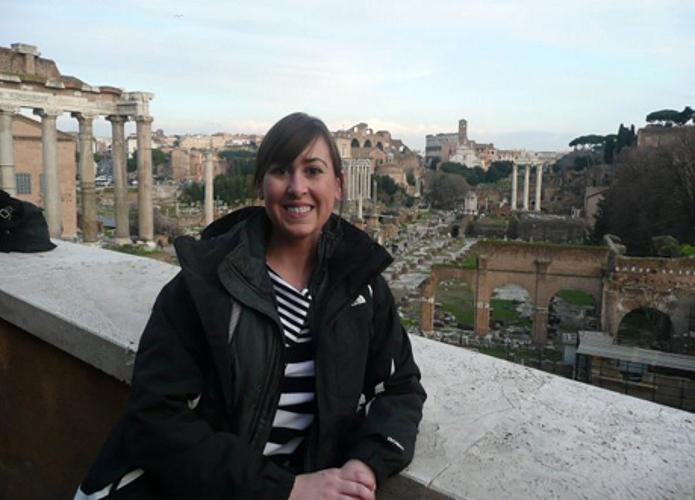MTSU STEM Mentors
Dr. Tiffany Saul

I am an anthropologist, and currently a research assistant professor with the Forensic Institute for Research and Education (FIRE) at Middle Tennessee State University. As a forensic anthropologist, I use my skills as to assist with the recovery and identification of unknown human remains. I completed my PhD at the University of Tennessee, Knoxville, in 2017. While I was there, I conducted research in several areas of forensic anthropology at the world-famous Anthropology Research Facility, commonly known as “The Body Farm.” My current research interests include stable isotope analysis as a tool for human identification, trauma analysis of skeletal remains, and the role of anthropology in human rights investigations. My projects have included collaborations with universities and labs across the country, including the University of Utah, Arizona State University, Defense POW/MIA Accounting Agency, and Oak Ridge National Laboratory. I established the Forensic Anthropology Isotope Research Laboratory at MTSU, where I am working to develop new methods for identifying human remains.
How would you describe your college experience?
When I first started my college experience, I thought of it as an extension of my high school education. I later realized university life is completely different from high school. While you still take core courses in basic subjects, you are able to take many more specialized courses in the subject that interests you most. For me, these were courses in archaeology and biology.
When did you know that you wanted to major in a STEM discipline?
I knew from an early age that I would be a scientist. I asked for my first microscope at six years old, and I always enjoyed exploring and learning new things. My first four years of college (my undergraduate degree) were used to study anthropology, which is the study of people. I then completed a Master’s degree in biology at MTSU, focusing upon the growth and development of the human skeleton. I realized as I studied anthropology that I needed to know how humans function biologically in order to understand differences in the skeleton that might lead to identification. While working on my doctoral degree, I took specialized classes in biochemistry and geochemistry. My research in isotope analysis involves the use of chemical signatures in bones and teeth to predict where people may have traveled during their lives and what they were eating. The work that I do now reflects my interests in many different scientific disciplines, and I still enjoy learning new scientific techniques that I can apply to forensic anthropology.
What is the most rewarding thing that you do in your job as a STEM professional?
The most rewarding experiences I have as an anthropologist involve finding answers. Each time I work a forensic case, I hope to provide information to law enforcement that can lead to an identification of an unknown person. This information also provides answers for family members of missing individuals.
What would you tell a middle or high school girl about careers in STEM?
Any career in a STEM field will provide an exciting professional experience. I love the work I do; each day provides a new experience. My STEM career allows me to do all the things I love. I conduct research, travel to interesting places, teach, perform community outreach, and most importantly, I continue learning new things every day.
What should middle and high school girls be doing to prepare themselves for college and a STEM careers?
Whether you plan to pursue a STEM career or any other field, you should start networking NOW! Meet professionals that have the career you want. Volunteer to work with them so that you can determine if it is something you can see yourself doing in the future. Learn which schools have the best programs for your area of interest. STEM, like other fields, is competitive. Work hard now, and you will be able to apply to the best programs and receive funding for your education. Take advantage of high school courses or programs that are offered in your area of interest. If you are interested in STEM, be sure to take extra science and math courses.
What advice do you have for teachers and counselors who are assisting students prepare for a STEM major and career?
Encourage students to pursue careers that they are excited about. Some students are apprehensive about pursuing STEM careers because they do not think they are "smart" enough or do not have the resources to pursue higher education. STEM careers require intelligence, but they also work well for individuals with creative thinking skills. Pairing students with mentors is a great way to expose them to real-world experiences in various professional fields. Most universities have graduate students and faculty willing to mentor middle and high school students. Having these students in our labs is energizing. They have great ideas, and their excitement is contagious!
What career advice would you give to girls if you only have two minutes?
Never be afraid to meet new people. Most professionals are excited to know that you are interested in their work. Any good scientist will be willing to share their science with you or advise you. If you are genuinely committed to pursuit of a specific goal, you can make anything great happen for yourself. Practicing new skills is what makes you good at any subject. STEM careers are exciting because the more you learn and the more you practice what you learn, the better you get at your work! There are always new questions to answer and new lessons to teach and learn.


